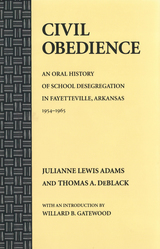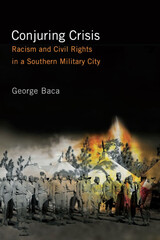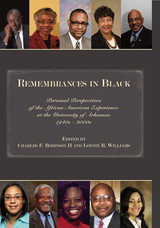4 books about Fayetteville

Civil Obedience
An Oral History of School Desegregation in Fayetteville, Arkansas, 1954–1965
Julianne Lewis Adams
University of Arkansas Press, 1994
Among the many changes that have occurred in our country in the last forty years, few have been as significant as those heralded by the Supreme Court's decision in the Brown vs. Board of Education case in 1954. By declaring racially segregated public schools unconstitutional, the court set in motion forces that resulted in the dismantling of the legal structure of Jim Crowism. The impact of the Brown decision was national in scope, but in no other region was its impact more far-reaching and traumatic than in the South. In Arkansas, as in other Southern states, racial segregation was not merely a well-stablished way of life, it was firmly imbedded in law.
While school desegregation generated much noise and some violence elsewhere in the South, the city of Fayetteville, Arkansas confronted the issue and resolved it with a good deal of dignity and grace, becoming the first Southern city to accommodate the Brown decision.
Through this fascinating collection of interviews with those who were involved in the desegregation process—students, teachers, administrators, civic leaders, and members of local groups—we learn of the determination of citizens to obey the law of the land and to see that freedom and equality took priority over their commitment to a school system that patently discriminated against one group of citizens.
In our continuing efforts to create a society in which all races and cultures can coexist, Civil Obedience is a story worthy of our full attention.
While school desegregation generated much noise and some violence elsewhere in the South, the city of Fayetteville, Arkansas confronted the issue and resolved it with a good deal of dignity and grace, becoming the first Southern city to accommodate the Brown decision.
Through this fascinating collection of interviews with those who were involved in the desegregation process—students, teachers, administrators, civic leaders, and members of local groups—we learn of the determination of citizens to obey the law of the land and to see that freedom and equality took priority over their commitment to a school system that patently discriminated against one group of citizens.
In our continuing efforts to create a society in which all races and cultures can coexist, Civil Obedience is a story worthy of our full attention.
[more]

Conjuring Crisis
Racism and Civil Rights in a Southern Military City
Baca, George
Rutgers University Press, 2010
How have civil rights transformed racial politics in America? Connecting economic and social reforms to racial and class inequality, Conjuring Crisis counters the myth of steady race progress by analyzing how the federal government and local politicians have sometimes "reformed" politics in ways that have amplified racism in the post civil-rights era.
In the 1990s at Fort Bragg and Fayetteville, North Carolina, the city's dominant political coalition of white civic and business leaders had lost control of the city council. Amid accusations of racism in the police department, two white council members joined black colleagues in support of the NAACP's demand for an investigation. George Baca's ethnographic research reveals how residents and politicians transformed an ordinary conflict into a "crisis" that raised the specter of chaos and disaster. He explores new territory by focusing on the broader intersection of militarization, urban politics, and civil rights.
In the 1990s at Fort Bragg and Fayetteville, North Carolina, the city's dominant political coalition of white civic and business leaders had lost control of the city council. Amid accusations of racism in the police department, two white council members joined black colleagues in support of the NAACP's demand for an investigation. George Baca's ethnographic research reveals how residents and politicians transformed an ordinary conflict into a "crisis" that raised the specter of chaos and disaster. He explores new territory by focusing on the broader intersection of militarization, urban politics, and civil rights.
[more]

Edge of Campus
A Journal of the Black Experience at the University of Arkansas
Gordon Morgan
University of Arkansas Press, 1990
Written by the first black faculty member employed at the University and his wife, a longtime research assistant, this book chronicles the setbacks and triumphs in their attempts to bring true integration to the University of Arkansas.
[more]

Remembrances in Black
Personal Perspectives of the African American Experience at the University of Arkansas, 1940s–2000s
Charles F. Robinson II
University of Arkansas Press, 2015
With the admittance in 1948 of Silas Hunt to the University of Arkansas Law School, the university became the first southern public institution of higher education to officially desegregate without being required to do so by court order. The process was difficult, but an important first step had been taken. Other students would follow in Silas Hunt's footsteps, and they along with the university would have to grapple with the situation. Remembrances in Black is an oral history that gathers the personal stories of African Americans who worked as faculty and staff and of students who studied at the state's flagship institution. These stories illustrate the anguish, struggle, and triumph of individuals who had their lives indelibly marked by their experiences at the school. Organized chronologically over sixty years, this book illustrates how people of color navigated both the evolving campus environment and that of the city of Fayetteville in their attempt to fulfill personal aspirations. Their stories demonstrate that the process of desegregation proved painfully slow to those who chose to challenge the forces of exclusion. Also, the remembrances question the extent to which desegregation has been fully realized.
[more]
READERS
Browse our collection.
PUBLISHERS
See BiblioVault's publisher services.
STUDENT SERVICES
Files for college accessibility offices.
UChicago Accessibility Resources
home | accessibility | search | about | contact us
BiblioVault ® 2001 - 2024
The University of Chicago Press









